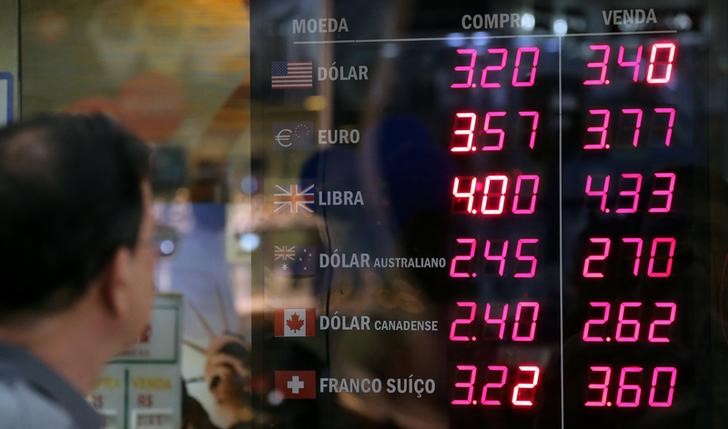By Patrick Graham
LONDON (Reuters) - Banks' currency trading arms believe they can exempt teams of strategists from new European rules on research by changing their job titles and imposing hard limits on what they can say in public.
The MiFID II directive, due to be implemented by the end of this year, is a sweeping reform of European Union securities rules to apply lessons from the 2008 financial crisis.
It includes a demand that the cost of research be itemized separately from other trading fees, aimed at encouraging asset managers to ask harder questions about the cost and value of research to ordinary savers and investors.
That has launched a negotiation process over how much banks charge and major lenders assume big fund clients will decline to pay for at least some of the mass of emailed analysis they get currently on political developments and economic data.
UK and French national regulators have provided opposing interpretations of the new rules and whether macroeconomic research is covered.
Some industry figures expect the EU's overarching European Securities and Markets Authority (ESMA) to give more guidance to resolve the issue.
Yet officials from several banks said they were working on the assumption that they could keep content outside the rules by steering clear of discussing derivatives or detailed trade ideas and potentially changing how they distribute research.
"What we think is going to happen is that the real big-name guys, who people will pay to talk to, get hired into research and will be regulated under the new MiFID rules," said the head of currency research at a large European bank, who asked not to be named.
"The desk strategists will just become sales people of some description. As long as they do not discuss options, for example, they will not be covered, that is our understanding."
ESMA's most recent guidance stipulates that whether or not material constitutes research should be linked to its content and not to how banks label it or its provenance.
It says specifically that whether research comes from a dealing desk or from a research department does not determine whether it should be billed and paid for.
It also says, however, that firms can treat "short term market commentary on the latest economic statistics" as minor non-monetary benefits that are not covered by the regulations.
"I am walking a very careful line on what we say. We run it all past compliance about once a month," said the head of macro research with another U.S. bank, who also asked not to be named.
"If we avoid talking about options, about actual trades, giving anything that sounds like investment advice then the hope is we will be exempt. At the end of the day what we are giving is in some way advice but if you are just taking a view on the euro, that is different to recommending an options structure."
LOWER STAKES
Banking researchers Tricumen estimated this week that in equities research the changes have already helped drive a 10 percent cut in the number of publishing analysts globally from around 7,100 at the end of 2013 to 6,400 at the end of 2016.
The fees at stake in fixed income, currencies and commodities (FICC) are far lower. The global head of research at another large U.S.-based bank estimated that 95 percent of what clients pay after the changes will be for equities research and only 5 percent macroeconomics.
"(In FICC) the buyside may be willing to pay perhaps the top 2 or 3 banks rather than the top 5," he said.
That may actually help the largest banks but will squeeze small and mid-sized players and lead to less informed discussion about markets and trading strategies, he said.
"But while we don’t think this is a good market development, (bigger) banks like us may actually benefit from the consolidation."
The ability of banks to navigate a path through the rule changes will be crucial if they are to avoid a cull of the hundreds of macro analysts still in the industry.

"There will be cuts, that's clear," said a long-serving strategist at one European bank, whose department's budget has been cut to 4 million pounds from more than 10 million last year. "There are a lot of people just waiting for the axe to fall."